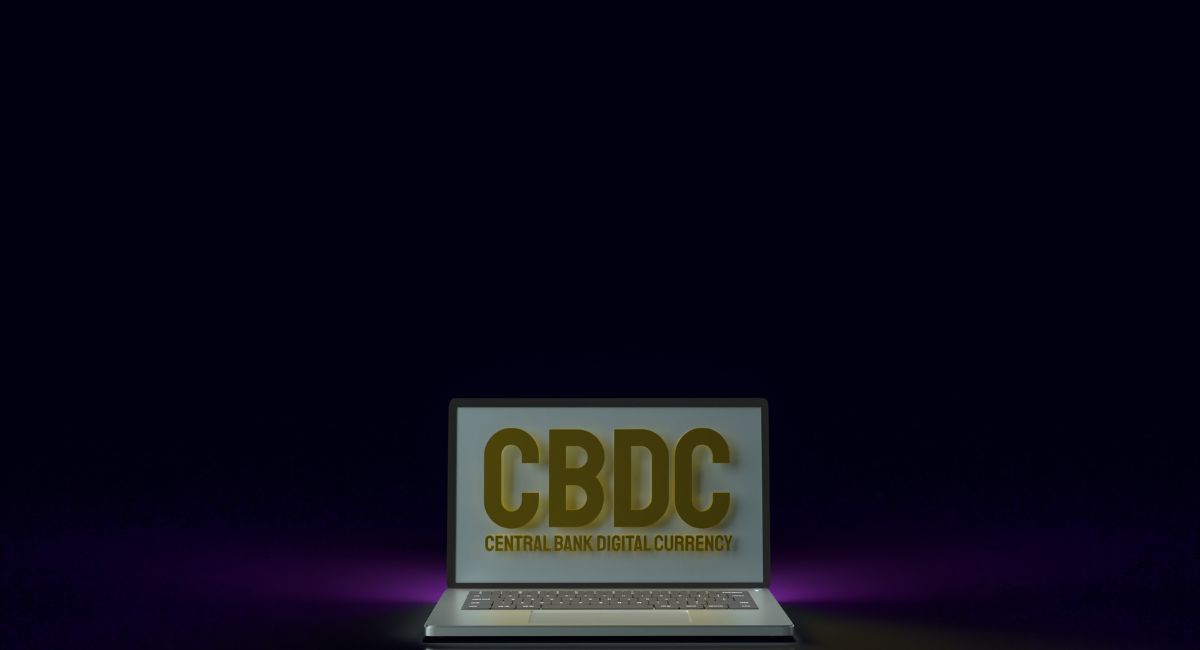Amazing Ways CBDCs Are Transforming Emerging Economies In 2024
Central Bank Digital Currencies (CBDCs) are changing the way we think about money, especially in countries that are still developing. By using technology, these digital currencies can help more people access financial services, make payments easier, and even change how countries trade with each other. This article explores how CBDCs are making a difference in emerging economies, highlighting their benefits and the challenges they face.
Key Takeaways
- CBDCs can help more people access banks and financial services, especially those who have been left out before.
- They make it easier to send and receive money quickly and at a lower cost, improving payment systems.
- CBDCs can help countries trade more smoothly by making international payments faster and cheaper.
- They allow central banks to respond better to economic changes and manage interest rates more effectively.
- Technological advancements driven by CBDCs can lead to new financial tools and better collaboration in the finance industry.
Enhancing Financial Inclusion and Access
Reaching Underserved Populations
Financial inclusion is crucial for helping underserved groups gain access to financial services. Many people, especially in rural areas, lack basic banking options. By implementing CBDCs, we can bridge this gap and provide services to those who have been left out.
Simplifying Access to Financial Services
CBDCs can make it easier for individuals to access financial services. With just a smartphone, people can manage their money, pay bills, and even save. This is especially important for those who may not have access to traditional banks. Here are some benefits of using CBDCs:
- Lower transaction costs
- Faster processing times
- Increased convenience
Dismantling Traditional Barriers
Traditional banking systems often have barriers that prevent people from accessing services. CBDCs can help dismantle these barriers by:
- Reducing the need for physical bank branches.
- Offering services without high fees.
- Providing user-friendly digital platforms.
The introduction of CBDCs can lead to a more inclusive financial system, allowing everyone to participate in the economy.
In summary, CBDCs are a powerful tool for enhancing financial inclusion, especially in emerging economies. They can help reach underserved populations, simplify access to services, and break down traditional barriers that have kept many people from participating in the financial system.
Highlight: brics decentralized financial framework
Revolutionizing Payment System Efficiency
The introduction of Central Bank Digital Currencies (CBDCs) is set to transform payment systems in remarkable ways. This change is crucial for improving how we handle financial transactions, especially in emerging economies.
Streamlining Transaction Procedures
CBDCs can make transactions much faster and easier. Unlike traditional methods that often involve many middlemen and long wait times, CBDC transactions can happen in real time. This means:
- Direct peer-to-peer transfers without intermediaries.
- Transaction times reduced to just seconds.
- Enhanced user experience, especially for urgent payments like cross-border transactions.
Leveraging Blockchain Technology
Using blockchain technology is a game-changer. It allows for secure and transparent transactions. The benefits include:
- Tamper-proof records that reduce fraud risks.
- Smart contracts that automate agreements, adding another layer of security.
- A more trustworthy environment for users and businesses.
Enhancing Security Features
CBDCs come with strong security measures. They use advanced cryptographic methods to protect transactions. This ensures:
- Transactions are safe from unauthorized access.
- Users feel more confident in using digital currencies.
- A solid foundation for future financial innovations.
The potential of CBDCs to streamline payment systems is not just about speed; it’s about creating a more inclusive financial landscape where everyone can participate.
In summary, CBDCs are not just a technological upgrade; they represent a significant shift in how we think about money and transactions. By making payments faster, safer, and more accessible, they can help drive economic growth in emerging markets. The poor can benefit more from blockchain evolution, as it opens doors to financial services that were previously out of reach.
Transforming International Dynamics
Improving Cross-Border Payments
CBDCs are making it easier for people to send money across borders. This change is crucial for global trade. With faster transactions, businesses can operate more efficiently. Here are some benefits of CBDCs in cross-border payments:
- Reduced transaction times
- Lower fees compared to traditional methods
- Increased transparency in transactions
Facilitating Global Trade
By simplifying payment processes, CBDCs help businesses engage in international trade. They allow for smoother transactions, which can lead to:
- More trade opportunities for small businesses
- Easier access to foreign markets
- Enhanced competitiveness on a global scale
Creating a Universal Digital Ecosystem
CBDCs can help build a universal digital payment system. This system can connect different currencies and platforms, making it easier for everyone to participate in the global economy. The rapid rise of this technology you can’t miss is reshaping how we think about money and trade.
The future of finance is digital, and CBDCs are at the forefront of this transformation, promising to make international transactions simpler and more secure.
Evolving Monetary Policy and Central Bank Strategies
The rise of CBDCs is changing how central banks manage money. This new digital currency gives them better tools to respond to economic changes.
Enhancing Responsiveness to Economic Conditions
CBDCs allow central banks to react quickly to shifts in the economy. They can adjust policies in real-time, making it easier to manage inflation and other economic factors. This means that central banks can be more effective in their roles.
Transforming Interest Rate Management
With CBDCs, central banks can set interest rates more accurately. This flexibility helps them control the economy better. For example:
- They can lower rates quickly to encourage spending.
- They can raise rates to cool down an overheating economy.
- They can use digital tools to automate these changes.
Exploring Novel Monetary Tools
CBDCs open the door to new ways of managing money. Central banks can experiment with:
- Programmable money that can be set to behave in specific ways.
- Smart contracts that automatically execute transactions based on conditions.
- Targeted monetary policies that can reach specific groups or sectors.
The introduction of CBDCs is not just about technology; it’s about reshaping how we think about money and its role in society.
In summary, CBDCs are not just a trend; they are a significant shift in how central banks operate. As countries like Australia explore these changes, they must consider the legal and operational challenges that come with them. This transformation could lead to a more responsive and innovative financial system.
Driving Technological Advancements in Fintech
Innovating Digital Wallets and Smart Contracts
The rise of Central Bank Digital Currencies (CBDCs) is paving the way for new innovations in the fintech sector. Digital wallets are becoming more user-friendly, allowing people to manage their money easily. Smart contracts, which are self-executing contracts with the terms directly written into code, are also gaining traction. These innovations can help streamline transactions and reduce costs.
Fostering Industry Collaboration
Collaboration between traditional banks and fintech companies is crucial. By working together, they can share knowledge and resources, leading to better financial products. This partnership can also help in creating a more dynamic financial ecosystem that adapts to users’ needs.
Developing Interoperability Standards
To ensure that different digital currencies and financial systems can work together, developing interoperability standards is essential. This means creating rules and guidelines that allow various systems to communicate effectively. Such standards can help in:
- Reducing transaction times
- Lowering costs for users
- Enhancing security across platforms
The future of finance relies on emerging technologies that can transform how we interact with money.
In summary, the advancements driven by CBDCs are not just about technology; they are about creating a more inclusive and efficient financial system for everyone. As these innovations unfold, they will likely reshape the landscape of finance in emerging economies.
Addressing Regulatory and Market Challenges
Establishing Clear Regulatory Frameworks
Creating clear rules is essential for the success of CBDCs. Regulatory frameworks help ensure that these digital currencies are safe and effective. They should cover:
- Security measures to protect users.
- Guidelines for how CBDCs can be used.
- Rules to prevent illegal activities.
Ensuring Market Acceptance
For CBDCs to work well, they need to be accepted by everyone. This means:
- Educating the public about the benefits of CBDCs.
- Encouraging businesses to adopt these digital currencies.
- Building trust in the technology behind CBDCs.
Maintaining Financial Stability
It’s important to keep the financial system stable while introducing CBDCs. This involves:
- Monitoring the impact of CBDCs on traditional banks.
- Ensuring that the introduction of CBDCs does not lead to economic shocks.
- Developing strategies to manage risks associated with digital currencies.
The successful implementation of CBDCs relies on public trust in central banks and their ability to manage the digital currency effectively.
In summary, addressing these challenges is crucial for the successful integration of CBDCs into the economy. By focusing on clear regulations, market acceptance, and financial stability, countries can harness the potential of CBDCs to improve their financial systems. CBDCs could transform cross-border payments by reducing costs, improving efficiency, and enhancing transparency.
Conclusion
In summary, Central Bank Digital Currencies (CBDCs) are changing the way emerging economies handle money and finance. By making financial services easier to access, CBDCs help more people join the economy, especially those who have been left out before. They also lower costs for transactions, making it cheaper to send money across borders. As countries adopt CBDCs, they can improve their payment systems and make them faster and safer. However, for CBDCs to work well, countries need to invest in technology and create clear rules. Overall, CBDCs hold great promise for a more inclusive and efficient financial future.
Frequently Asked Questions
What are CBDCs and how do they work?
CBDCs, or Central Bank Digital Currencies, are digital forms of a country’s official money. They are created and managed by a nation’s central bank. Unlike regular cash, CBDCs exist only online and can be used for transactions just like physical money.
How can CBDCs help people without bank accounts?
CBDCs can reach people who don’t have bank accounts by allowing them to use their phones or other devices to make transactions. This means more people can join the economy and access financial services easily.
Are CBDCs safe to use?
Yes, CBDCs are designed with strong security features. They use advanced technology to protect transactions, making them safer than many traditional payment methods.
What benefits do CBDCs offer for international trade?
CBDCs can make international payments faster and cheaper. They reduce the number of middlemen involved, which helps lower costs and speeds up transactions across borders.
How do CBDCs change the way central banks manage money?
CBDCs give central banks better tools to respond to economic changes. They can adjust interest rates and other monetary policies more quickly and effectively with digital currencies.
What challenges do CBDCs face in implementation?
Some challenges include creating clear rules for use, gaining public trust, and ensuring that the technology works well across different systems.
Stay informed with daily updates from Blockchain Magazine on Google News. Click here to follow us and mark as favorite: [Blockchain Magazine on Google News].
Get Blockchain Insights In Inbox
Stay ahead of the curve with expert analysis and market updates.
latest from tech
Disclaimer: Any post shared by a third-party agency are sponsored and Blockchain Magazine has no views on any such posts. The views and opinions expressed in this post are those of the clients and do not necessarily reflect the official policy or position of Blockchain Magazine. The information provided in this post is for informational purposes only and should not be considered as financial, investment, or professional advice. Blockchain Magazine does not endorse or promote any specific products, services, or companies mentioned in this posts. Readers are encouraged to conduct their own research and consult with a qualified professional before making any financial decisions. The featured image used is just a creative depiction of the title and it does not intend to hurt sentiments of any person or institution. If it hurts anyone sentiments, please do not hesitate to reach out to Blockchain Magazine.

 Bitcoin
Bitcoin  Ethereum
Ethereum  XRP
XRP  Tether
Tether  Solana
Solana  USDC
USDC  Dogecoin
Dogecoin  Cardano
Cardano  Lido Staked Ether
Lido Staked Ether  TRON
TRON  Chainlink
Chainlink  Avalanche
Avalanche  Wrapped stETH
Wrapped stETH  Wrapped Bitcoin
Wrapped Bitcoin  Stellar
Stellar  Sui
Sui  Toncoin
Toncoin  Hedera
Hedera  Shiba Inu
Shiba Inu  WETH
WETH  Litecoin
Litecoin  Polkadot
Polkadot  Hyperliquid
Hyperliquid  LEO Token
LEO Token  Bitcoin Cash
Bitcoin Cash  Bitget Token
Bitget Token  Uniswap
Uniswap  Wrapped eETH
Wrapped eETH  USDS
USDS  Ethena USDe
Ethena USDe  Pepe
Pepe  NEAR Protocol
NEAR Protocol  Official Trump
Official Trump  MANTRA
MANTRA  Aave
Aave  Ondo
Ondo  Aptos
Aptos  Internet Computer
Internet Computer  Monero
Monero  Mantle
Mantle  Ethereum Classic
Ethereum Classic  WhiteBIT Coin
WhiteBIT Coin  Bittensor
Bittensor  Cronos
Cronos  Dai
Dai  POL (ex-MATIC)
POL (ex-MATIC)  OKB
OKB 




